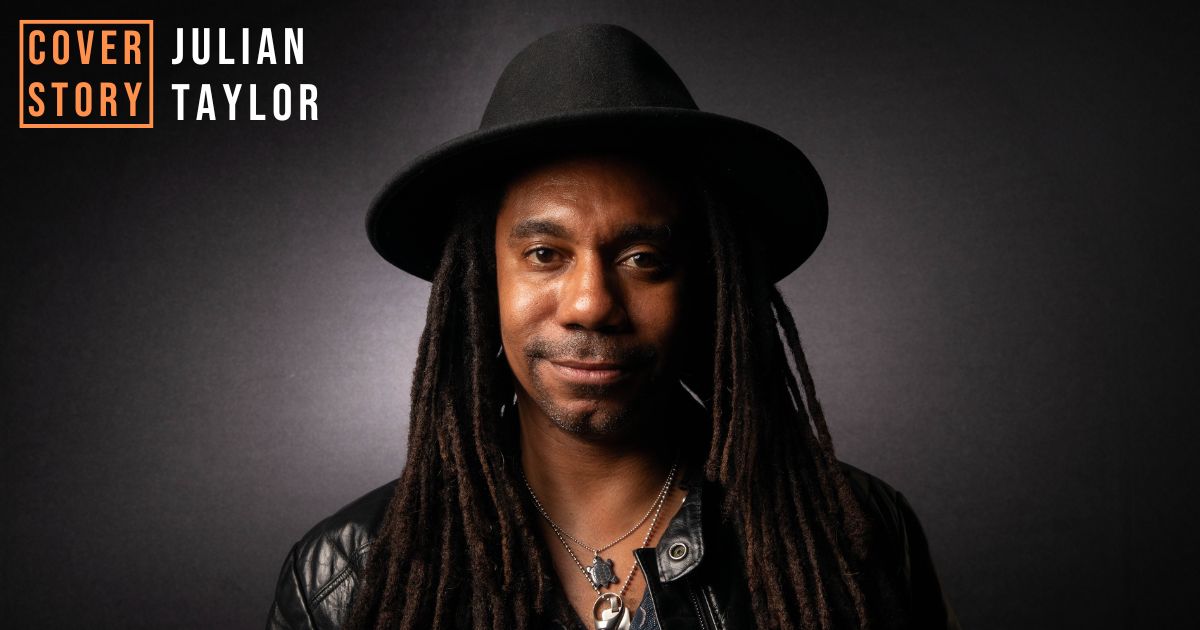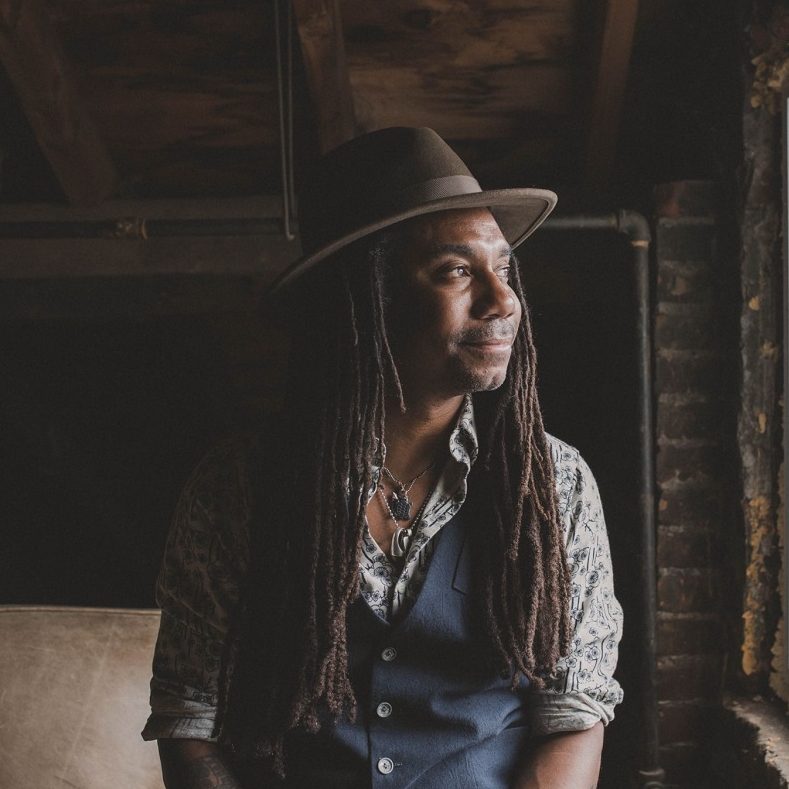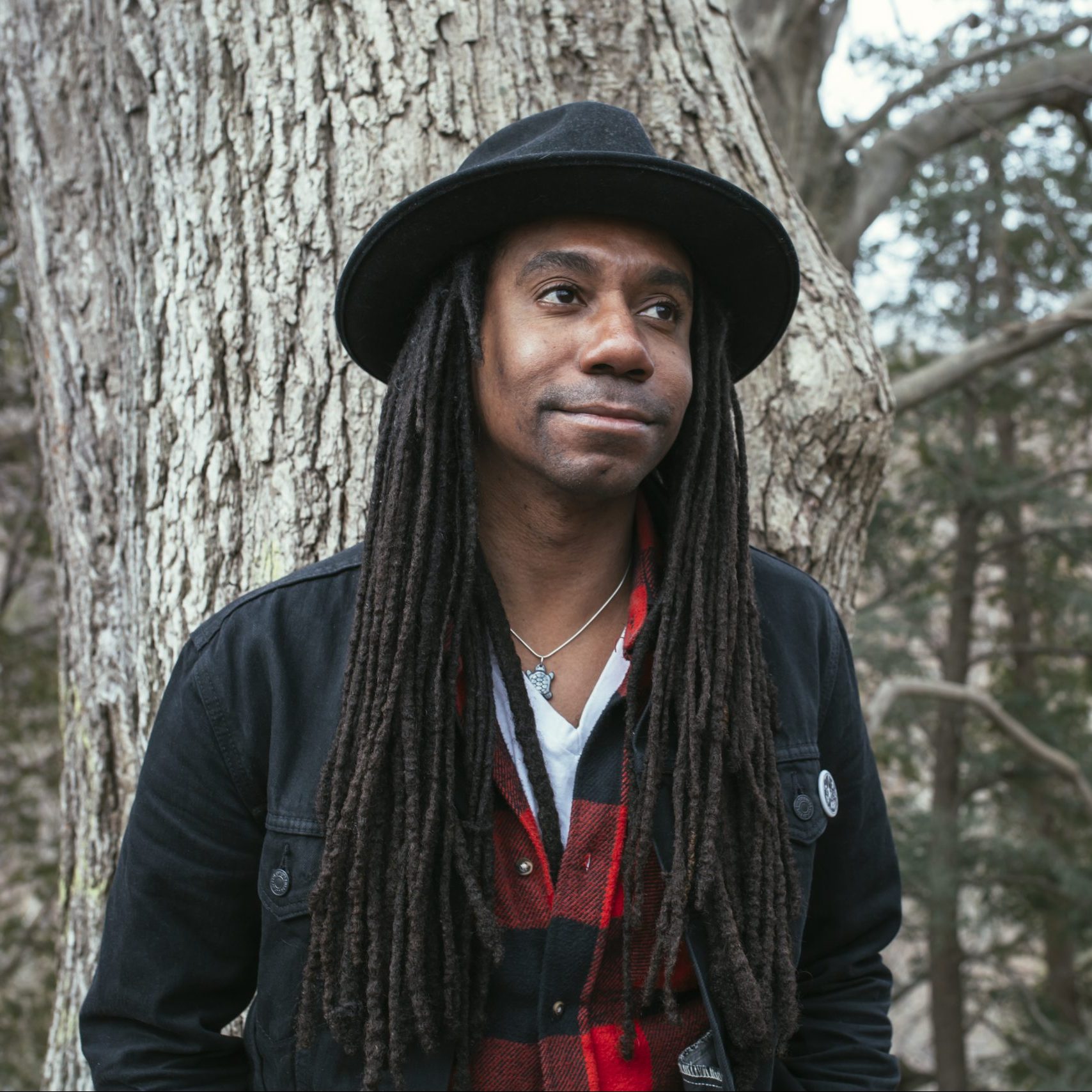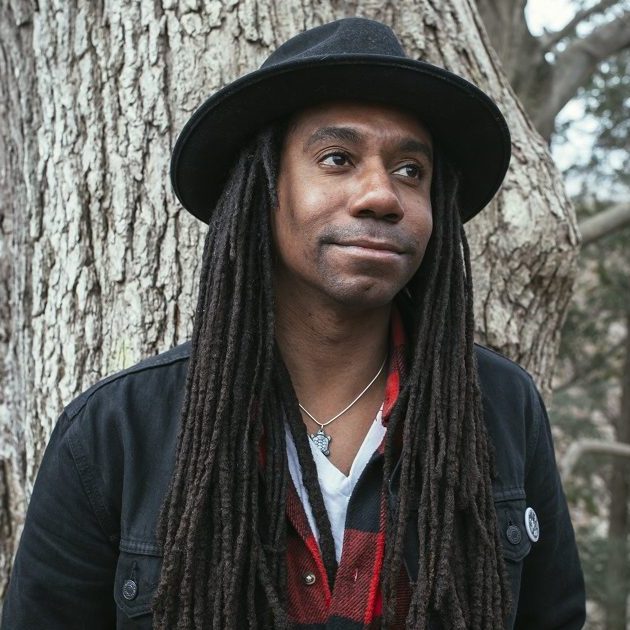Much like the songs on his latest album Pathways, the sounds swirling around Canadian singer-songwriter Julian Taylor on our recent phone call for BGS were also filled with curiosity, emotion, and the subtle, intrinsic tones of a modern world unfolding.
Walking the streets of his native Toronto, the introspective depths of Taylor’s voice and pure sentiments radiated in conversation were only complemented by the organized chaos of an international city in motion. Honking of taxi cabs at clustered intersections; the thrust of train cars on the underground subway; other conversations of varying degrees of volume in passing. And Taylor himself.
“Don’t the grass look greener on the other side/ but be careful of what you wish for could get left behind,” Taylor weaves through “Ain’t Life Strange.” “I see where I went wrong and all I could have done. There’s a fine line between a broken and beautiful mind.”
Those lyrics in particular speak to the long, arduous, yet bountiful road for Taylor. At 46, he’s spent his entire adult life in pursuit of creative fulfillment and stability in an often haphazard industry. In his tenure, Taylor’s seen the high-water mark and complete collapse of the music business – and then some.
Co-founder of 1990s Canadian alt-rock act Staggered Crossing, Taylor found himself in big meetings with even bigger record label executives. The band was signed by Warner Music Canada and earned some limited success before being dropped by the label not long after their debut album hit the streets.
From there, it became a DIY ethos at the heart of Staggered Crossing. But, after a handful of albums and plateauing popularity, the group split in 2007, ultimately leaving Taylor out on his own. But, he trudged ahead, even if he was unsure of his next move, whether personally or professionally.
Frustrated and burned out by the music industry, Taylor circled back to a beloved bar of his, the Dora Keogh Irish Pub in the Danforth neighborhood of Toronto. There he summoned the courage and energy to start an open mic night. With a stripped-down set of simply Taylor and his guitar, he quickly found this new path of intent and purpose for the music within him.
From there, it’s been this ongoing journey of self and of song for Julian Taylor. What has resulted is this soothing voice of determination and compassion pushing steadfast into this latest chapter of his sound and scope.
I was recently in Toronto for the first time and it felt like one of the most culturally and sonically diverse cities I’ve ever come across.
Julian Taylor: Yeah, definitely. It’s been that way ever since I was a kid. It was a real small town when I was born, but it’s just grown exponentially. The music thing has been extremely positive. People really do support each other and everything. Like, it doesn’t really matter where you’re coming from.
What does it mean to be a songwriter from Ontario and greater Canada? I mean, you have some of the best of the best. Gordon Lightfoot, Gord Downie, Neil Young, Joni Mitchell, Leonard Cohen. The list goes on.
It’s an honor. I’m happy to be from here. You have the rich heritage that I have and the rich musical landscape that we grew up with. A lot of people don’t really know that so many of these artists, like the people that you’ve mentioned, are Canadian. We’ve had such an incredible influence on the world. I think a lot of that has to do with the cultural mosaic and landscape we live in. I mean, it is not easy to tour this country. And we sort of grind our teeth here a lot of the time. So, when you do that, it makes you a little bit more appreciative of any sort of accolades or any sort of impact that you may have on the world.
When I was reading your backstory, you must have been a teenager when you started Staggered Crossing.
Yeah, I was pretty young. When we first got signed, it was at the tail end of, I guess, what you would want to call the high-water mark. We didn’t get to really experience that. We experienced the very last little bit of it. And then the entire industry changed. I’ve seen it change so many times in my career. And I started when I was 16.
What was it that kept you going after Staggered Crossing broke up? Was it just this idea that, “Hell or high water, this is what I’m going to, no matter what”?
Part of that was it. The other part of it was encouragement. The fact that any of my songs resonated with anybody really was the main point. You’re like, “I’m going to do this no matter what, because this is my calling and this is my passion, this is my purpose.” But, when you have those things validated by other people? That’s just a huge gift. The fact that people would continue to book me and play my stuff on the radio or people would come to shows and tell me that my music meant something to them. With that kind of encouragement, it’s really hard to stop going.
With Staggered Crossing being signed and going through the motions of very large corporations, what were some of the things you took away from that experience you applied to your solo career?
I think it all happened afterwards, really. Not during that period of time, because afterwards we had to fend for ourselves. But, it was the first time that the do-it-yourself mentality was put into place. We didn’t even know what DIY was. I just ended up doing it because I wanted to get my music out there. I wanted to keep touring, to continue to create records. So, I did anything and everything I could to keep that happening. I learned a lot about the business, about promotions, marketing, and distribution. Basically, everything a label would do for an artist, I learned how to do it alongside my friends and we kept on pushing ahead. It was hard and also easy at the same time, because it was something I wanted to do. It certainly tired me out at one point in time. I was so disenchanted with music that I stopped and then I came back with a brand-new sort of outlook on it.
What does it mean to be at this juncture of your career and still be just as curious, and always mining for the next song, as ever?
That’s a good question, man. It’s really about the job and the task at hand. And the job is to document the human condition through my experiences. World domination is still on the back burner. [Laughs] As an artist, it’s about putting in the work and that work is really hard to do. It’s emotionally exhausting. It’s physically exhausting. But, at the end of the day, when you look at yourself in the mirror and think about it, “I’ve written these beautiful songs and they’ve brought beauty to people’s lives.” And these performances have brought beauty to both of our lives – not just theirs, but to mine. It’s a two-way street.
Where does that work ethic come from within you?
Maybe it’s the Jamaican side of me. [Laughs] It’s definitely a family thing. My family on both sides have worked so hard. My mom’s side of the family has sacrificed and worked so hard. And my dad’s side, who migrated [to Canada]. On my mom’s side, we were here to begin with. And my dad’s side, they came here with not a lot to go on, and discrimination and things like that. They worked their asses off and always told me I would have to work 150 percent harder than anybody else because of my background.
And have you?
From a very young age.
Do you find they were correct with that assessment?
Yeah, they’re still correct about that. And, I don’t really know how and when that’s going to change. There are more opportunities reported to people now that are minorities, but the reality of having to work that much harder is still a truism. That’s unfortunate. But, you know what? I dare to ask anybody from the minority to say that something hasn’t benefited them from that work ethic.
As you were trying to move forward after Staggered Crossing, you started this open mic at a bar in Danforth. Were you kind of circling back to where it all began and recalibrating things?
Yeah. I used to work at that same Irish pub in the Danforth. I was a bus boy and also a server. One day, some old guy came in and he was just so rude to me, so racist. And I thought to myself, “What am I doing? I’ve got to do something about this.” That was the catalyst that got me back into performing music. The proprietors of that establishment offered the open stage to me on that Monday to help me get going again. They’re some of the greatest friends I’ve got in this world. And it was funny because, after Staggered Crossing, I just couldn’t go on. I had tried so hard to “make it” and it was such an uphill battle. Pushing a boulder up a hill. I gave up and needed some time. And then when the open stage came back, it was a community thing. I rallied around people and they rallied around me. And it’s still a musical community out here in the city. It all comes down to community.
Why did you title the album Pathways?
Pathways felt like a journey. It’s been so long getting here, you know? I’ve got 12 studio records in my name and a couple of live records. I’ve toured extensively for the last 20 years. And this felt like a record that I needed to go inward, rather than outward. Some of my records are very contemplative of the outside world. And this one, I was contemplating my inside world – what was in my head, my heart and soul. Trying to battle through some of the things that go on in everyday life decisions and choices I’ve made. The pressure of the last two records and creating a new record was on me. I was feeling that and decided Pathways was a really good metaphor for where I was headed, where I’ve gone, where I’ve been. I’m not sure where it’s going to take me next, but it just felt like a nice walk in a cool breeze.
Since the 2020 shutdown, there’s been, thankfully, a lot more conversation in the music industry about mental health and physical wellness. Does that play into where you’re at right now?
It does, yeah. I think about it every day. It’s really hard to make it as a musician. And it’s really hard to be a human in this world. I’ll be the first to admit that I go through a lot of stuff in my head. I’ve never been diagnosed with a mental illness, but I wouldn’t be surprised if I have something. I feel it a lot, the pressure to keep making a living, so that I can keep a roof over my head and my family fed. I could walk away from music if I had to, but I don’t want to. I don’t know if that would make me happy or not.
But, when it comes to fiscal responsibility, that’s a lot of stress. And then, there’s the stress social media puts on us, where you get attacked for no reason by people who don’t even know you. Sure, there’s a lot of praise going on, but there’s a lot of the other stuff, too. And now everything’s sort of been put into the musician’s hands. It’s a bit of a mental dilemma. I’ve lost a lot of people this year and that was part of that as well. You know, it’s life. People think people in the public eye or musicians putting themselves out there have rhino skin and they’re superhuman — but we’re not.
Photo Credit: Robert Georgeff



